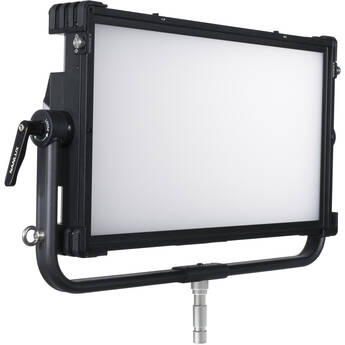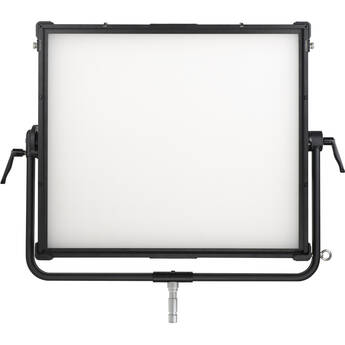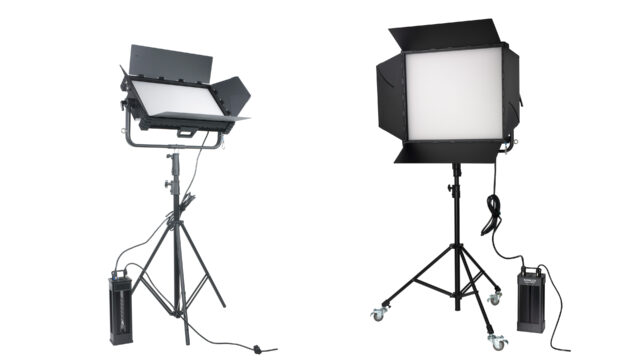Nanlux Dyno 650C and 1200C Introduced – High Output RGBWW LED Lights
Nanlux have announced two powerful new full color RGBWW LED softlights in the form of the Dyno 650C and Dyno 1200C. Aiming at high end cine, broadcast and media production, the Dyno series promises high output, energy efficiency and control.
The world of professional LED production lighting is really heating up with more choices than ever before, and at prices to suit every budget and requirement. Between Ledgo, Nanlite and now Nanlux, all brands which belong to parent brand Nanguang, they have every base covered.
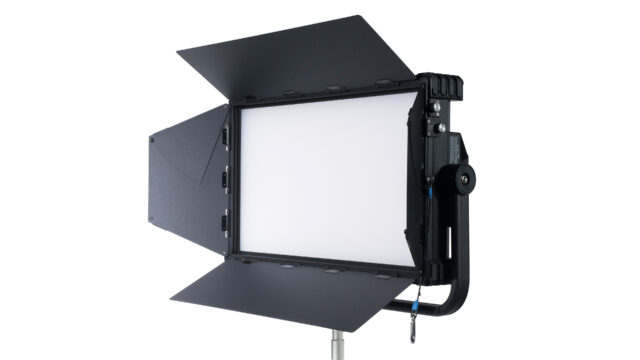
Nanlux is aiming at the high end cine rental market with the new Dyno 650C and 1200C RGBWW softlights, however, they are priced at a point where many production companies and owner operators can also afford them.
Introducing the Nanlux Dyno 650C and 1200C
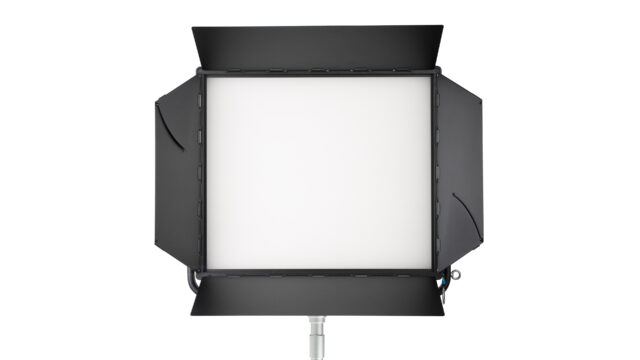
The Nanlux Dyno 650C and 1200C are high output RGBWW softlights with premium features that are competitively priced. The Dyno 650C is a familiar 2×1 format softlight of the same overall size as the Ledgo MagicHue G260, and it accepts some of the same third party modifiers. The larger Dyno 1200C is a 3×3 size and offers even higher output.
Both lights have a CCT range of 2700K to 20,000K, with dimming in 0.1% intervals, built in LumenRadio wireless control, RDM and 5-pin DMX control and are can be networked and controlled with other light fixtures, popular lighting consoles and control software.
A suite of effects and built in gel library round out the feature set which is competitive with other similar offerings from other manufacturers.
What Makes the Nanlux Dyno 650C and 1200C Special?
Where Nanlux have differentiated the Dyno 650C and 1200C from the competition is in sheer output and punch over longer distances. According to Nanlux the Dyno 650C outputs more than twice the light of the ARRI Skypanel S60C. The Dyno 1200C outputs almost as much light as the ARRI Skypanel S360C, falling about 14% behind according to the photometrics. However, it does this while being smaller and lighter, making portable, high output LED lighting a reality.
More for Less
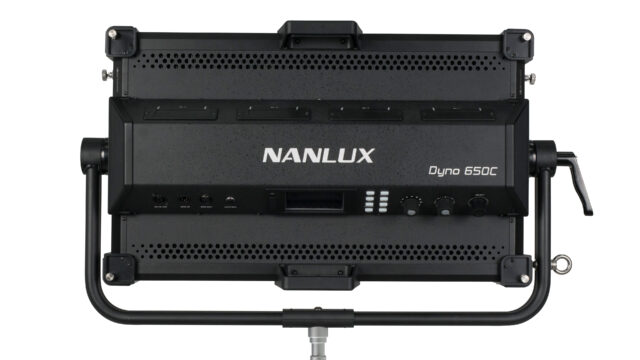
The new Nanlux Dyno softlights seem to tick all the boxes. They offer everything you would expect of a state of the art LED full color softlight. High color accuracy, a powerful light engine offering precise control, effects and gels, and built in wired and wireless control. But they also promise to give you more of all that in terms of light output per watt than you’ve come to expect, and for less money.
If the promised performance is accurate, the Dyno 650C and 1200C are pushing the envelope of current LED light efficiency.
Dyno 650C (CCT Boost Mode) 3200K:
2403 lux (223 fc) at 3M
979 lux (91 fc) at 5M
546 lux (51 fc) at 7M
339 lux (31 fc) at 9M
Dyno 650C (CCT Boost Mode) 5600K:
2649 lux (246 fc) at 3M
1082 lux (101 fc) at 5M
601 lux (56 fc) at 7M
373 lux (35 fc) at 9M
Dyno 1200C (CCT Boost Mode) 3200K:
5083 lux (472 fc) at 3M
2077 lux (193 fc) at 5M
1145 lux (106 fc) at 7M
720 lux (67 fc) at 9M
Dyno 1200C (CCT Boost Mode) 5600K:
5596 lux (520 fc) at 3M
2282 lux (212 fc) at 5M
1247 lux (116 fc) at 7M
779 lux (72 fc) at 9M
Nanlux Dyno 650C vs ARRI Skypanel S60C (LE2)
For comparison, according to the ARRI Photometrics app, the ARRI Skypanel S60C (LE2) outputs 1304 lux (121 fc) at 3M when at 3200K, and 1534 lux (142 fc) at 5600K. This makes the Nanlux Dyno 650C 1.84x brighter as the Skypanel S60C at 3200K and 1.72x brighter at 5600K.
The difference is more pronounced at longer distances. The SkyPanel S60C outputs 240 lux at 7M (3200K) and 283 lux at 7M (5600K), that’s 2.27x brighter and 2.12x respectively. The beam angle of the Dyno 650C is a wider 160 degrees than the 105.8 degree beam angle of the ARRI S60C.
Nanlux Dyno 1200C vs ARRI Skypanel S360C (LE2)
Let’s take a look now at the output of the Dyno 1200C vs the S360C, although the Dyno 1200C does not offer the same size aperture as the larger Skypanel S360C.
According to the ARRI Photometrics app, the Skypanel S360C (LE2) outputs 5847 lux (543 fc) at 3M (3200K) and 6410 lux (595 fc) at 3M (5600K). The Dyno 1200C is only 86% as bright as the Skypanel S360C (LE2) and 87% as bright at 5600K.
The Nanlux Dyno 1200C also offers a beam angle of 160 degrees, compared to the S360C 104.6 degree beam angle. This means it’s putting out almost as much light at any given distance as the physically larger Skypanel S360C but over a wider area.
Dyno 650C and 1200C Features
Nanlux Dyno 650C
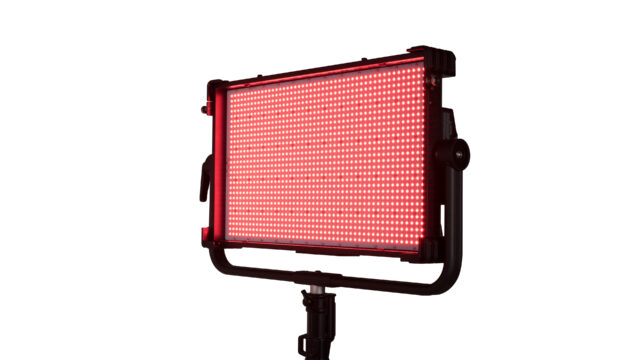
- Size: 857mm (Width) x 630mm (Height) x 173mm (Depth) / 33.74″ x 24.8″ x 6.81″
- Weight: 15.8kg / 34.8lb (Light Fixture), 4.2kg / 9.3lb (Power Adapter)
- Power Consumption: Nominal 650W, Max 700W
- LED Total Power: 672W x 5
- Power Supply: DC48V/29.2A Max, AC100-240V 50/60Hz
- Optical: 160 degree beam angle, RGBWW LED
- CRI: Average 95
- TLCI: Average 95
- CCT: 2700K-20000K (+/- G/M)
- Dimming: 0-100%, stepless 0.1% from 1% to 100%
- Control: On-board control, 2.4G, Bluetooth, DMX (5 pin), RDM, LumenRadio
- On Board Effects: Hue Loop, CCT Loop, INT Loop, Flash, Pulse, Storm, Police Car, TV, Paparazzi, Candle/Fire, Disco, Bad Bulb, Firework, Explosion, Welding
- Housing: Aluminum
- Mounting: Fully adjustable yoke 5/8″ (28mm) junior pin
- Cooling: Fan, Max ambient temp 45 deg C
Nanlux Dyno 1200C
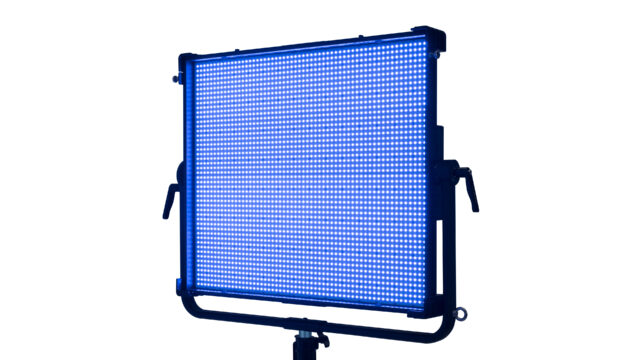
- Size: 1023mm (Width) x 918mm (Height) x 173mm (Depth) / 40.28″ x 36.14″ x 6.81″
- Weight: 26.2kg / 57.8lb (Light Fixture), 7.5kg / 16.5lb (Power Adapter)
- Power Consumption: Nominal 1200W, Max 1400W
- LED Total Power: 1392W x 5
- Power Supply: DC48V/29.2A Max, AC100-240V 50/60Hz
- Optical: 160 degree beam angle, RGBWW LED
- CRI: Average 95
- TLCI: Average 95
- CCT: 2700K-20000K (+/- G/M)
- Dimming: 0-100%, stepless 0.1% from 1% to 100%
- Control: On-board control, 2.4G, Bluetooth, DMX (5 pin), RDM, LumenRadio
- On Board Effects: Hue Loop, CCT Loop, INT Loop, Flash, Pulse, Storm, Police Car, TV, Paparazzi, Candle/Fire, Disco, Bad Bulb, Firework, Explosion, Welding
- Housing: Aluminum
- Mounting: Fully adjustable yoke 5/8″ (28mm) junior pin
- Cooling: Fan, Max ambient temp 45 deg C
Optional Accessories: Rectangular Softbox, Octagonal Softbox, 65 degree Eggcrate, Barn Door, Flight case.
Concluding Thoughts on the Nanlux Dyno 650C and 1200C
The Dyno 650C will be priced at $3999 and the Dyno 1200C will be priced at $7590.
This level of pricing represents a lot of value, however, it’s not entirely fair to compare them to the Skypanel for the high end cine production market they are aiming for. This market in many parts of the world is a tough sell for any alternative to ARRI. Even the excellent Litepanels Gemini have struggled to get a foothold. It’s not just about output and price, or portability, ARRI have put huge engineering efforts into quality of light, calibration, and sophisticated modes such as the XYZ coordinate mode which is popular with top DP’s to match lighting color precisely to a metered color using a colorimeter.
When it comes to reliability, rugged build (despite size and weight), serviceability, trust and loyalty, as well as proven color accuracy, it will be interesting to see if these lights can make an inroad at that level. I have my doubts, however, I do see them hitting the general professional market very well precisely because output and price are deciding factors.
What are your thoughts on the new Nanlux Dyno 650C and 1200C? Have these lights got your interest? Let us know in the comments below.
